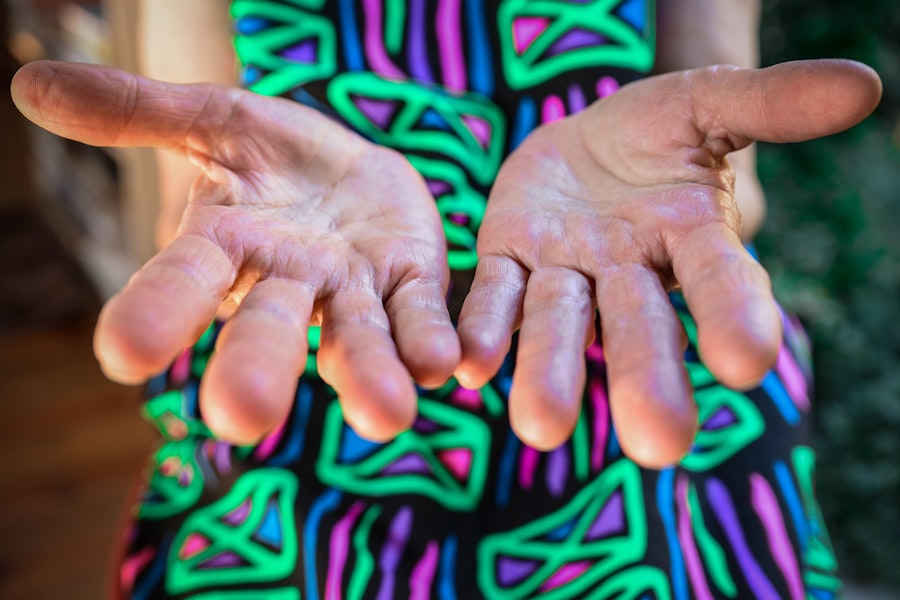Hygiene is often perceived as a basic aspect of daily life, primarily associated with physical health. However, its implications extend far beyond the surface, significantly influencing mental health. The act of maintaining personal cleanliness can foster a sense of control and stability in an individual’s life.
When people engage in regular hygiene practices, such as bathing, brushing teeth, and grooming, they often experience a boost in their overall mood. This connection between hygiene and mental well-being is rooted in the psychological principle that our environment and self-care routines can shape our emotional states. A clean and organized space, for instance, can lead to feelings of calmness and clarity, while neglecting hygiene can contribute to feelings of chaos and distress.
Moreover, the societal expectations surrounding hygiene can create additional pressure on individuals. In many cultures, personal cleanliness is not only a matter of health but also a reflection of one’s character and social standing. This societal lens can amplify the psychological effects of hygiene practices.
For example, individuals who adhere to rigorous hygiene standards may feel a sense of accomplishment and self-worth, while those who struggle with maintaining these standards may experience feelings of shame or inadequacy. The interplay between societal norms and personal hygiene practices underscores the profound impact that hygiene can have on mental health, illustrating that the act of caring for oneself is deeply intertwined with emotional well-being.
Key Takeaways
- Good hygiene can have a positive impact on mental health by promoting a sense of well-being and confidence.
- Personal hygiene is closely linked to self-esteem, as feeling clean and presentable can boost one’s self-image and confidence.
- Poor hygiene can lead to feelings of shame, embarrassment, and isolation, negatively impacting mental well-being.
- Practicing good hygiene can help manage stress and anxiety by providing a sense of control and routine in daily life.
- Tips for maintaining good hygiene include establishing a regular routine, seeking professional help if needed, and addressing any underlying mental health concerns.
The Connection Between Personal Hygiene and Self-Esteem
Personal hygiene plays a pivotal role in shaping self-esteem, which is fundamentally linked to how individuals perceive themselves and their worth. Engaging in regular hygiene practices can enhance one’s self-image, leading to increased confidence and a more positive outlook on life. For instance, someone who takes the time to shower regularly, groom themselves, and dress neatly may feel more prepared to face social situations or professional challenges.
This boost in self-esteem can create a virtuous cycle; as individuals feel better about themselves, they are more likely to engage in social interactions and pursue opportunities that further enhance their self-worth. Conversely, neglecting personal hygiene can lead to a decline in self-esteem. Individuals who struggle with maintaining cleanliness may feel embarrassed or anxious about their appearance, which can deter them from socializing or participating in activities they once enjoyed.
This withdrawal can exacerbate feelings of loneliness and depression, creating a feedback loop that further diminishes their self-esteem. For example, a student who feels self-conscious about their body odor may avoid attending school events or engaging with peers, leading to isolation and a negative self-perception. Thus, the relationship between personal hygiene and self-esteem is complex and multifaceted, highlighting the importance of self-care in fostering a healthy self-image.
How Poor Hygiene Can Affect Mental Well-Being

The consequences of poor hygiene extend beyond mere physical discomfort; they can significantly impact mental well-being. Individuals who neglect their hygiene may experience a range of psychological issues, including anxiety, depression, and social withdrawal. The discomfort associated with poor hygiene—such as body odor or unkempt appearance—can lead to heightened self-consciousness and anxiety in social situations.
This anxiety can manifest as avoidance behavior, where individuals isolate themselves to escape potential judgment from others. Over time, this isolation can contribute to feelings of loneliness and exacerbate existing mental health conditions. Additionally, poor hygiene can serve as a symptom of underlying mental health issues.
Conditions such as depression or obsessive-compulsive disorder (OCD) can lead to neglecting personal care routines. For instance, someone experiencing severe depression may find it challenging to muster the energy or motivation to shower or change clothes regularly. This neglect not only affects their physical health but also reinforces negative thought patterns associated with their mental state.
The cycle becomes self-perpetuating; as hygiene deteriorates, so does mental health, creating a challenging barrier for individuals seeking to improve their overall well-being.
The Role of Hygiene in Managing Stress and Anxiety
Hygiene practices can serve as effective tools for managing stress and anxiety. Engaging in self-care routines that include personal cleanliness can provide individuals with a sense of control over their environment and bodies. For many people, the act of washing hands or taking a warm bath can be soothing rituals that help alleviate stress.
These routines create moments of mindfulness, allowing individuals to focus on the present moment rather than ruminating on past worries or future anxieties. The sensory experiences associated with hygiene—such as the feel of warm water or the scent of soap—can also evoke feelings of comfort and relaxation. Furthermore, maintaining good hygiene can enhance one’s ability to cope with stressors in daily life.
When individuals feel clean and well-groomed, they are more likely to approach challenges with confidence and resilience. For example, someone preparing for a job interview may find that taking the time to groom themselves properly helps them feel more composed and ready to tackle the situation. This preparation not only boosts their confidence but also reduces anxiety levels associated with performance pressure.
Thus, hygiene practices can be integral components of stress management strategies, providing individuals with practical ways to enhance their mental resilience.
Tips for Maintaining Good Hygiene for Better Mental Health
To foster better mental health through hygiene practices, individuals can adopt several practical strategies that promote cleanliness and self-care. First and foremost, establishing a consistent daily routine is essential. This routine should include basic hygiene tasks such as showering, brushing teeth, and washing hands regularly.
By incorporating these activities into daily life, individuals create a sense of structure that can enhance feelings of stability and control. In addition to daily routines, individuals should also pay attention to their living environments. A clean and organized space can significantly impact mental well-being.
Regularly decluttering living areas and maintaining cleanliness can create an atmosphere conducive to relaxation and focus. For instance, setting aside time each week for cleaning tasks—such as vacuuming or dusting—can help individuals feel more at ease in their surroundings. Furthermore, incorporating elements that promote relaxation—such as scented candles or calming music—during hygiene routines can enhance the overall experience and contribute positively to mental health.
Seeking Professional Help for Mental Health and Hygiene Concerns

While maintaining good hygiene is crucial for mental well-being, it is essential to recognize when professional help may be necessary.
Therapists and counselors can provide valuable insights into the underlying causes of poor hygiene practices and help individuals develop coping strategies tailored to their unique situations.
In some cases, poor hygiene may be indicative of deeper psychological conditions such as depression or anxiety disorders. Mental health professionals can offer therapeutic interventions that address these underlying issues while also emphasizing the importance of self-care practices like hygiene.
By seeking professional guidance, individuals not only address their hygiene concerns but also embark on a journey toward improved mental health and overall well-being.
In a related article discussing the importance of mental health and hygiene, the article “The Crucial Ecological Roles of Microbes and Lower Cryptogams in Ecosystems” explores the interconnectedness of mental well-being and environmental health. This article highlights the impact of microbial communities on our overall health and emphasizes the need for a holistic approach to wellness. To read more about this fascinating topic, visit here.
FAQs
What is the connection between mental health and hygiene?
The connection between mental health and hygiene is that maintaining good personal hygiene can have a positive impact on mental well-being. Poor hygiene can contribute to feelings of low self-esteem, social isolation, and even depression.
How does personal hygiene affect mental health?
Good personal hygiene, such as regular bathing, grooming, and wearing clean clothes, can boost self-esteem and confidence, leading to improved mental well-being. Conversely, poor personal hygiene can lead to feelings of shame, embarrassment, and social withdrawal, which can negatively impact mental health.
What are some hygiene practices that can benefit mental health?
Practicing good personal hygiene, such as regular bathing, brushing teeth, and wearing clean clothes, can benefit mental health. Additionally, maintaining a clean and organized living environment can also have a positive impact on mental well-being.
Can poor hygiene contribute to mental health issues?
Yes, poor hygiene can contribute to mental health issues such as low self-esteem, social isolation, and depression. Neglecting personal hygiene can lead to feelings of shame and embarrassment, which can negatively impact mental well-being.
How can individuals improve their hygiene habits for better mental health?
Individuals can improve their hygiene habits by establishing a regular routine for bathing, grooming, and dental care. Additionally, maintaining a clean and organized living environment can also contribute to better mental health. Seeking support from a mental health professional can also be beneficial for addressing any underlying issues related to hygiene and mental well-being.
























+ There are no comments
Add yours